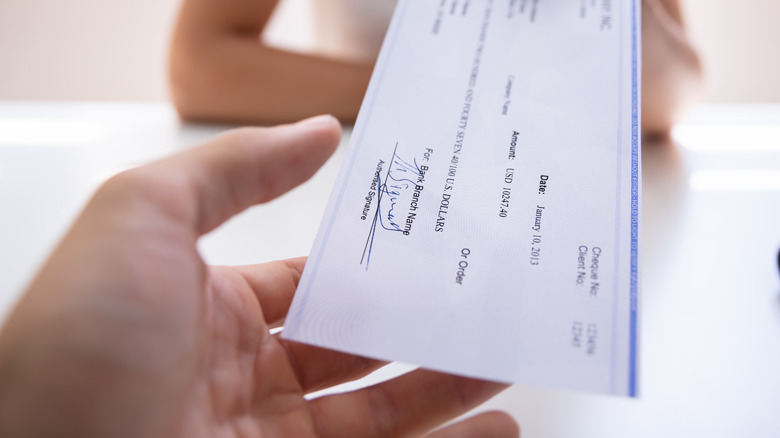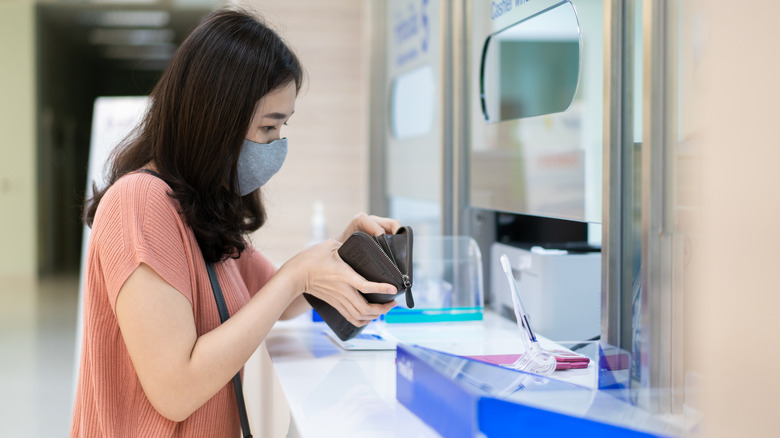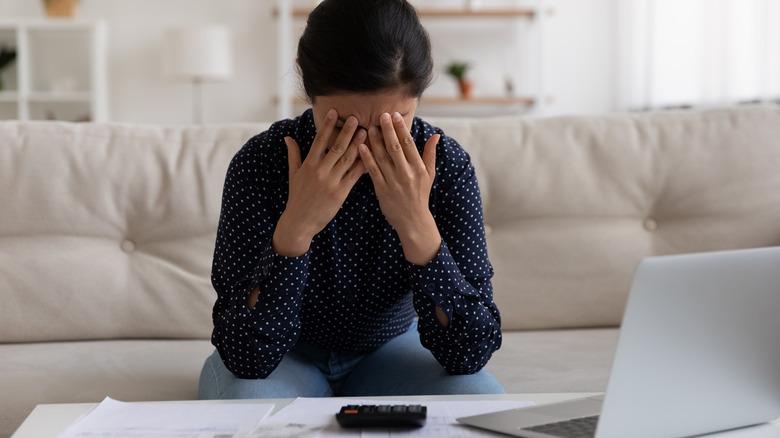The Easiest Way To Get A Cashier's Check
The use of paper checks for the purpose of payment has long since been on the decline in the United States. A once popular form of payment that used to be acceptable anywhere, from grocery stores to major department stores, paying by check has shown a steady drop in use. Consider, in 2000, nearly 42.6 billion checks were used compared to 14.5 billion in 2018, according to a diary study via the Federal Reserve Bank of Atlanta.
However, there still may come a time when you need to provide a check or in some cases, a cashier's check, in order to pay. Whether it's for a deposit for rent, a down payment for a new home or to pay for more expensive items like furniture or a vehicle, a check may still be an acceptable, and preferred, form of compensation. If you find you do need a cashier's check, here's the easiest — and only — way to get one.
Where to go for a cashier's check and what you need to get one
To get a cashier's check, you need to visit a legitimate financial institution, such as your bank or credit union. Note that most financial institutions will only issue a cashier's check if you have an account with them. If you don't have an account, you might be able to get one from a credit union, but this is not guaranteed. Further, if you get a cashier's check from a financial institution where you don't have an account, you'll need to cover the full amount in cash.
To get a cashier's check from your bank or credit union, it's much like any other in-person transaction; although, you may be asked for some form of identification. The funds will be drawn from your account, or you can pay in cash. Since the check will be issued by the bank or credit union, you'll need to tell them how much the check is to be written for and to whom the check is for; all of this information will be officially printed out on the check. You can also add a memo, similar to a personal check.
In most cases, the certified check comes with an additional processing fee that you'll need to pay as well. Unlike a personal check where your banking information, such as your account number, is printed on the check, a certified cashier's check will instead have the financial institution's information. This can be a more secure way to send money if you're worried about giving people or businesses personal information.
Be wary of certified cashier's check scams
Although legitimate cashier's checks can be a secure and safe way to send money, there are scammers out there that have been known to take advantage of people. Scams of this nature play on the fact that these types of checks are supposed to be more secure than personal checks.
In such a scam, what will happen is a scammer will offer you a facsimile of a cashier's check that will look completely authentic, and ask you to deposit it into your account. Then they will get you to either send them the money back through direct deposit, money order, or even gift cards. Once you have sent the money back to the scammer — surely minus a little compensation promised for your cooperation — you will soon find out that the check is fake and lose the money you sent, plus a fee for the dishonored check.
To avoid this type of fraudulent scam you should never accept cashier's checks from someone you don't know, especially if they want the funds sent back to them. You should always verify that the checks you put into your account are legitimate so that you don't fall victim to this trick. If you feel like you have been scammed in this manner, you must reach out to your financial institution right away to report the situation and see if you're able to make a stop to any payments you may have sent.


